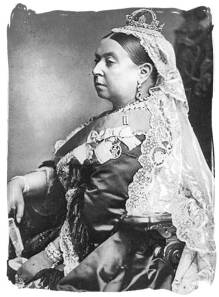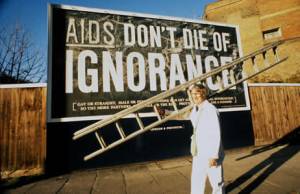Nowadays we have a huge freedom to talk about things. Think about sex. You can talk to anyone about it and not a lot of people will think it’s weird. That wasn’t always the matter. There was a long period in which it was a disgrace to talk about sex, or even to think about it.
In the second half of the nineteen-century people couldn’t talk about sex at all. There was a period of Victorian prudery. They called it after the Queen Victoria, because she prevailed at that time. She went very far with the prevention of sexuality. The books of male and female authors weren’t allowed to stand next to each other. Chair legs were covered with blankets because they looked like female legs. This caused a lot of pornography and slinky brothels.
As soon as people assumed that the sexual information wasn’t something to tell the children, it was only a matter of time before even adults weren’t allowed to know things about sex. There was a special book department for children in the 16th and 17th century. Even the children’s Bible got rewritten in the 18th century. Every sexual story had been cut. A century after that the people still didn’t thought it was enough. The Bible got rewritten for adults. Now every person was protected against the sexual influence. There arose a world without sexuality.
This sexual stupidity led to a lot of unhappy marriages, unwished children and a lot of wasted lives. At least the problems couldn’t be denied. People were nervous, depressed or even physically ill because of their sexual problems. There were doctors like Freud, Bloch and Hirschfeld, who wanted to help these people. They concluded that people should be educated about sex and they started to tell their colleagues. Slowly they had reached a huge audience. The fear of not talking about it reduced and there arose a complete new view on sexuality.
There weren’t a lot of changes after the Second World War in England. It wasn’t until the seventies and eighties that things changed radically. The thoughts about sexuality became the opposite of what they were in the nineteenth century. ‘The Joy of Sex’ was a book that was published in the seventies. This book changed the view on sexuality. There were different positions in the book and a chapter that was called ‘foursome and more some’.
‘The Joy of Sex’ was the first book that introduced sexual images in the heads of people, but it wasn’t the first book to introduce nudity. The rural newspaper ‘The Sun’ had that honour. Every day there were some topless ladies on page three. A few years before the book ‘The Joy of Sex’ was published, some people complained about the popular page three. They said it was pornography. When the first nude picture was published a lot of people still thought that topless pictures were pornography. But there came more nudity pictures. This shows the explosion of sexual thoughts that got created in people’s minds.
In 1982 a book, written by Shirley Conran, had got published. It was called ‘Lace’ and there is a movie made of it. It’s about four different kinds of woman. They are friends from school. One of those women gets a love child. If you had a love child in this time, people looked contemptuously at you. This book got ground breaking. It thought women that it wasn’t bad if you we’re single, sexual active and successful. The book was a bestseller and soon everyone got a copy. Even teenagers started to read the books. They grabbed the book from their parents and shared it with their whole group of friends. Shirley Conran thinks that the book is so popular because it was written from a women’s point of view. She got very cheerful when she heard that fourteen and fifteen year old girls read her book. She knew she had finally reached her audience. She got the nickname ‘Superwoman’ because she combined the motherhood with her carrier.
The Internet also caused great changes on sexual matters. Pornography got popular, because of the Internet. ‘Debbie Does Dallas’ was the first porn movie that saw the light. People were shocked about the movie, but they also that it was hilarious. Judy Astley tells that she watched the movie with some friends, because they wanted a good laugh.
Everything that was related to sexuality changed when that movie got released. People got more freedom, which had its dangers. On April the fourth 1982 the first person, Terrence Higgings, died of aids. The government got warned that it could be much worse if they didn’t react fast. So the government started a campaign. People got flyers that said: ‘AIDS, don’t die of ignorance.’ According to Stephen Kind, a young man back then, the flyers worked. People changed immediately. ‘The sex got safer and people started to think about the consequences.’ Edwina Currie worked on the campaign. She tells: ‘we were desperately trying to keep the campaign going. Everybody in England needed to hear it.’
Back then people got aware of the dangers of sex, but nowadays nobody seems to care anymore. The effects of the Cultural Revolution aren’t that visible anymore. Nowadays people don’t think about the consequences of having unsafe sex and they have gone wild. Peter den Haring tells his story to the Tijdgeest Magazine. Early 90s there was an advertisement in the New Age magazine. Three days sex with three strangers. It was meant to be a groupstherapie in which you learned what you liked on sexually. The love that was once between to lovers had completely fated away. Peter had to do an test to see if he had any STDs. He got a paper which said he was free of STDs and he could get away on the weekend. Free sex was the goal of the whole weekend. The influence of the Cultural Revolution is still around us. Only the positive sides still need to be found.





Recent Comments